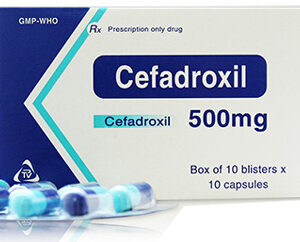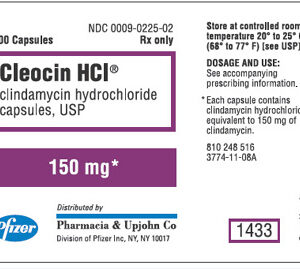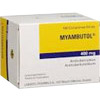Tinidazole is a synthetic antibacterial and antiprotozoal agent that is primarily used to treat various infections caused by bacteria, parasites, and certain types of protozoa. It belongs to the nitroimidazole class of drugs and works by inhibiting the DNA synthesis of these microorganisms, ultimately leading to their death.
This medication is available in oral tablet form and is commonly prescribed by healthcare professionals worldwide. Tinidazole is known for its high efficacy, broad-spectrum activity, and convenient dosing regimen, making it an important tool in the management of various infections.
Avoiding Risks with Tinidazole
While Tinidazole is a highly effective medication in treating infections, there are certain situations where it should be avoided. It is essential to be aware of these contraindications to ensure safe and appropriate use of the medication.
Pregnancy and Breastfeeding
Tinidazole is not recommended for use during pregnancy, particularly during the first trimester. Studies have suggested a potential risk of developmental abnormalities in the fetus. Furthermore, it is known to pass into breast milk, therefore, should be avoided by nursing mothers.
Allergy to Nitroimidazole Derivatives
Individuals with a known hypersensitivity or allergy to nitroimidazole derivatives, such as metronidazole, should not take Tinidazole. Cross-reactivity between these drugs may occur, leading to allergic reactions.
Adverse Reactions
Like any medication, Tinidazole can potentially cause adverse reactions, although they may not occur in all individuals. It is important to be aware of these potential side effects to promptly identify and manage them if they arise.
Gastrointestinal Effects
The most commonly reported side effects of Tinidazole are related to the gastrointestinal system. These may include nausea, vomiting, abdominal discomfort, and metallic taste in the mouth. These symptoms are usually mild and transient.
Allergic Reactions
In rare cases, individuals may experience an allergic reaction to Tinidazole. Signs of an allergic reaction may include rash, itching, swelling, severe dizziness, and difficulty breathing. Immediate medical attention should be sought if any of these symptoms occur.
Dosing Information
Tinidazole should be taken exactly as prescribed by your healthcare provider. It is typically recommended to take the medication with food to help reduce the gastrointestinal side effects. The dosage and duration of treatment will vary depending on the specific infection being treated and individual factors such as weight and renal function.
If you forget to take a dose of Tinidazole, take it as soon as you remember. However, if it is almost time for your next scheduled dose, skip the missed dose and continue with your regular dosing schedule. Do not double the dose to make up for a missed one.
In the event of an overdose, contact your local poison control center or seek immediate medical attention. Symptoms of overdose may include nausea, vomiting, dizziness, and seizures.
Drug Combinations
Before taking Tinidazole, it is important to inform your healthcare provider about all other medications you are currently taking. Certain drugs can interact with Tinidazole, potentially affecting its efficacy or increasing the risk of side effects.
One significant drug interaction to be aware of is the concurrent use of alcohol. Drinking alcohol while taking Tinidazole can cause severe nausea, vomiting, flushing, and headache. It is imperative to avoid alcohol consumption throughout the course of Tinidazole treatment and for at least 3 days after the last dose.
The Answers You Need
- 1. Can I take Tinidazole with food?
- 2. How long does Tinidazole stay in your system?
- 3. Can Tinidazole be used to treat dental infections?
- 4. Can Tinidazole be taken during menstruation?
- 5. Can Tinidazole cause a yeast infection?
Yes, it is generally recommended to take Tinidazole with food to help reduce the occurrence of gastrointestinal side effects.
The elimination half-life of Tinidazole is approximately 12-14 hours. It may take 2-3 days for the drug to be completely eliminated from the body.
Tinidazole is not typically used for dental infections. It is more commonly prescribed for infections of the gastrointestinal tract, genitourinary system, and certain parasitic infections.
There are no specific contraindications for taking Tinidazole during menstruation. However, it is always advisable to consult with your healthcare provider to ensure its safety and appropriateness in your specific case.
Tinidazole may disrupt the natural balance of bacteria and fungi in the body, potentially leading to an overgrowth of Candida yeast and causing a yeast infection. If you experience any signs or symptoms of a yeast infection, consult your healthcare provider for appropriate management.






Reviews
There are no reviews yet.